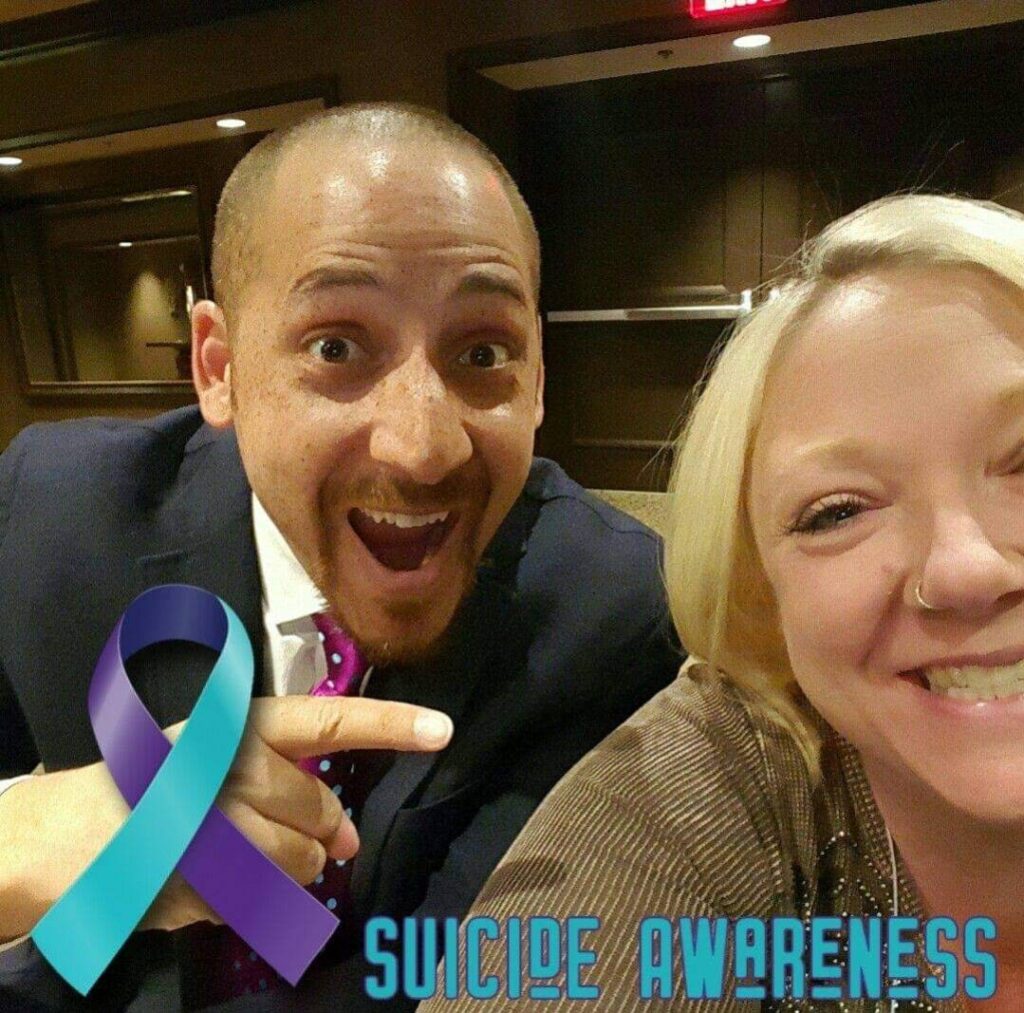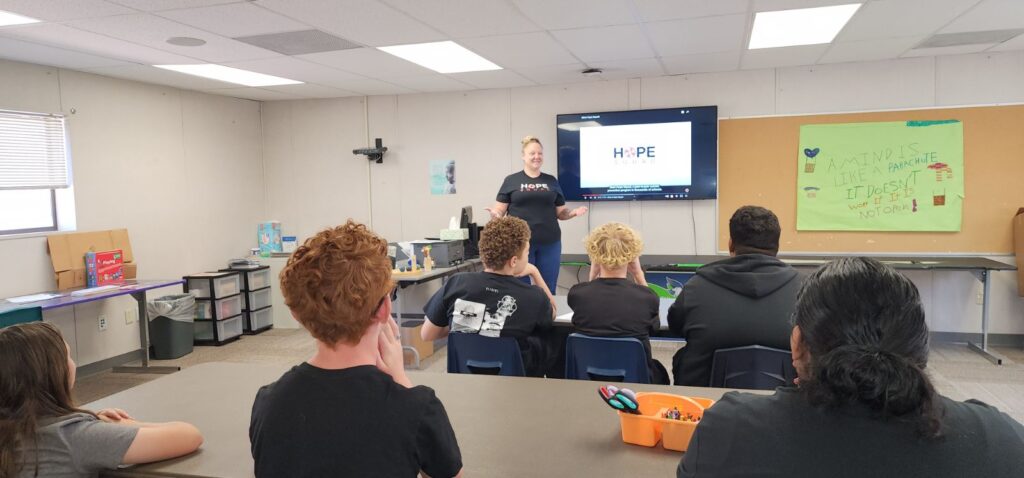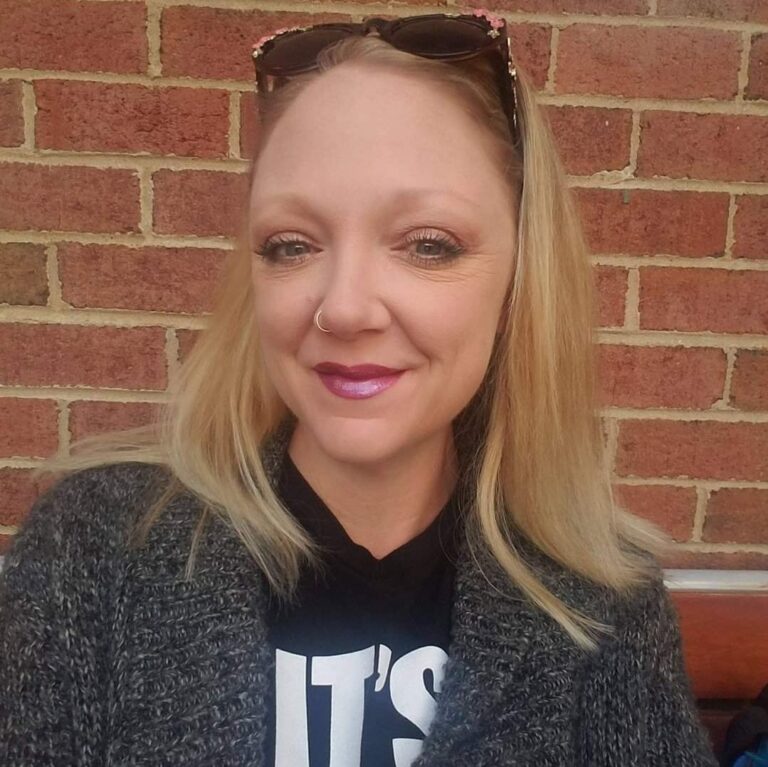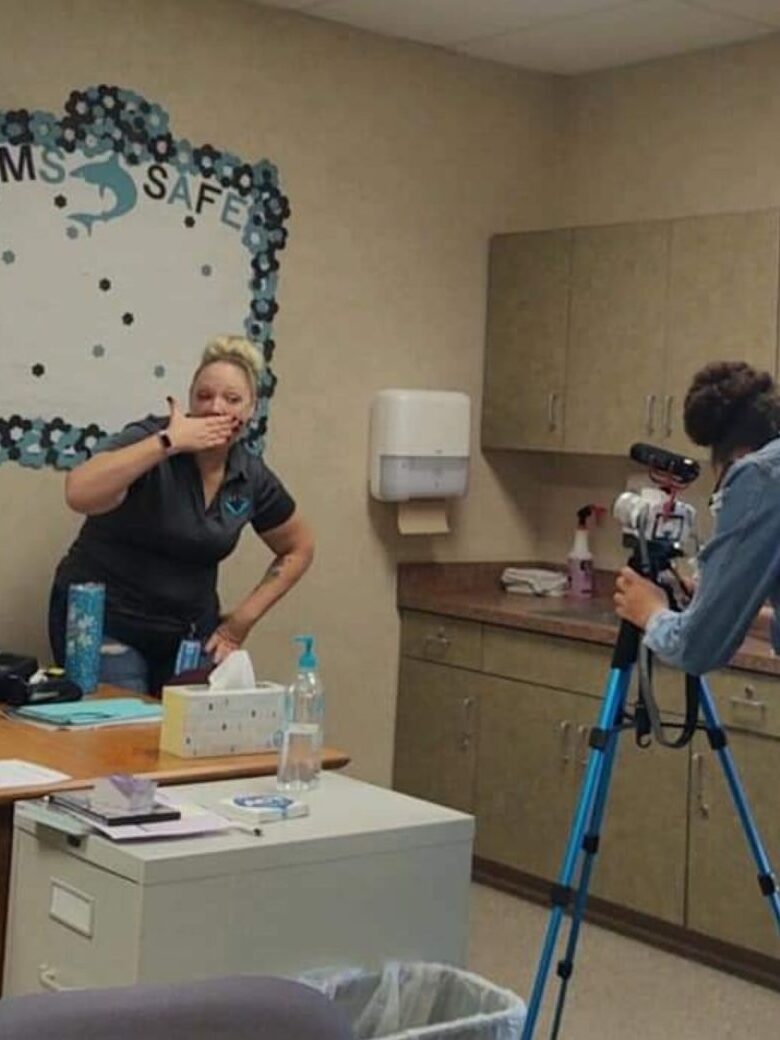Alicia Lewis, a licensed clinical social worker, has dedicated over a decade of her life to supporting students at Rosemary Clarke Middle School. Holding both a Bachelor’s and a Master’s degree in Social Work from the University of Nevada, Reno, Ms. Lewis has brought her expertise and compassion to the school environment, becoming a vital resource for students facing a range of challenges.
Ms. Lewis’ journey into social work was born out of personal experience and necessity. “I have a daughter that has some mental health issues,” she shared. “Going through the channels of learning about her mental health disorder, different therapeutic approaches, and how best to help our family deal with it turned into a lifelong goal of education, which brought me to social work.” Initially, she never imagined herself working in a school setting. However, an internship through a coalition-led grant placed her at Rosemary Clarke Middle School, where she quickly discovered her calling. “The rest is just history,” she says, reflecting on her 11 years at the school.
As a school social worker, Ms. Lewis wears many hats. Her primary focus is ensuring that students’ basic needs are met so they can thrive academically and emotionally. “If we have a kid that’s sitting in a math class and he hasn’t eaten in two days or is getting evicted out of their home, he’s not going to focus on that math class,” Ms. Lewis explains. “He’s going to be worried about all of his life stressors.” Her job involves creating support structures tailored to each student, whether that means providing resources within the school, connecting families with external support, or addressing both simultaneously.

Ms. Lewis collaborates closely with the school counselors, and she describes their roles as overlapping yet distinct. “I like to think of the social work program and the counselors as kind of like a Venn diagram,” she explains. “My primary focus is on social-emotional support, addressing students’ emotional well-being and then extending that into academics. The counselors, on the other hand, concentrate primarily on academics while also addressing social-emotional needs.” This balance allows both roles to complement each other effectively in supporting the students.
A typical day for Ms. Lewis is far from predictable. “The only thing typical about my day is that I spend time with students,” she remarks. Her day can range from coordinating community resources and conducting crisis interventions to engaging in classroom support and providing emotional counseling. “Really, there is no one way to look at it; I just run with it,” she adds.
Ms. Lewis identifies students needing her services through various channels—teachers, administrators, parents, social media, and even peers. Each referral is unique, requiring a tailored approach. For instance, if a student needs new shoes, it’s a simple fix involving donations or drives. However, more serious issues, like mental health crises, require a nuanced and in-depth assessment. “If we have a child that may be cutting, that doesn’t necessarily mean they’re suicidal,” she explains. “It’s what we call a maladaptive coping skill. It means something’s going on, and that’s how they’ve figured out how to cope with it.” Understanding the underlying issues allows her to develop a comprehensive plan to support the student.
Bullying is a recurring issue at the middle school level nationwide, compounded by the rise of social media. “Social media makes everything ten times harder because the kids can’t escape from it,” Ms. Lewis points out. Part of her job is teaching students the difference between bullying and someone simply not being nice, empowering them to advocate for themselves and report incidents when necessary.
Building trust with students is a gradual process, often requiring patience and empathy. “I let the kids know that if they’re having a rough day, they can come to the counseling center. That doesn’t mean they have to come in and tell me their life stories,” Ms. Lewis says. She emphasizes the importance of allowing students to control their narratives and seek help at their own pace. “If they don’t want to talk, that’s okay. We’re just going to sit together in silence, and that’s fine too. That can be very supportive.”
Resilience, according to Ms. Lewis, is a complex trait shaped by both nature and nurture. “We have two types of kids. We have like the Billy’s and the Andy’s,” she explains, referencing the book “Help for Billy.” The book illustrates how different life experiences shape children’s responses to adversity. “Is resiliency built internally, or is it built externally based on their environment?” she asks. Understanding each child’s background helps her foster resilience through tailored coping strategies that resonate with their interests and strengths.
Ms. Lewis’ work has had a profound impact on many students, including one memorable case early in her career. She recalls a student on the verge of expulsion due to volatile behavior. “He was very angry, had sensory issues, and needed the proper supports to know it was okay to feel how he was feeling,” she shares. Through patience and persistence, she connected with him over their mutual love for the Seattle Seahawks, building a rapport that transformed his academic performance and behavior. By his sophomore year, he was in general education classes, earning A’s and B’s. “Once you have those supports in place, they just flourish,” Ms. Lewis reflects.
Despite the rewarding nature of her work, Ms. Lewis faces significant challenges, particularly regarding parent engagement. “The biggest hurdle for me is getting parents engaged on the child’s level instead of on their level,” she says. Many parents struggle to accept that their child might not feel comfortable sharing their struggles. “Knowing they can tell you whatever it is and feeling comfortable in doing so are two different things,” she emphasizes.
Ms. Lewis hopes to see more social workers in schools, especially given the increased need following the COVID-19 pandemic. “We need more of us because the need is high,” she asserts. She envisions a future where social workers are better integrated into the school system, providing comprehensive support for students’ social, emotional, and academic needs.
Ms. Lewis is particularly passionate about the Hope Squad program, a peer-to-peer suicide prevention initiative that empowers students to support each other. “Hope Squad is all about creating connections,” she says. “We know that students are more likely to confide in their peers than in adults, so this program equips them with the skills to recognize warning signs and get their friends the help they need.”

After its challenging launch last year, Ms. Lewis has seen encouraging progress. “Last year was difficult because we were trying to implement it mid-year, and finding a way to fit it into schedules without pulling kids out of classes was tough. But this year, we’ve integrated it into our advisory class, meeting four days a week, and it’s made a huge difference,” she notes. “The kids are really embracing their roles, and it’s wonderful to see students from different backgrounds working together. This program has the potential to impact the entire student body, fostering a supportive and inclusive school environment.”
As she continues her journey at Rosemary Clarke Middle School, Ms. Lewis remains committed to her mission of supporting students and families, fostering resilience, and promoting mental health awareness. Her work is a testament to the power of empathy, patience, and dedication in making a difference in the lives of young people.






1 Comment
Thank you for all the love and care you share, Ms. Lewis!